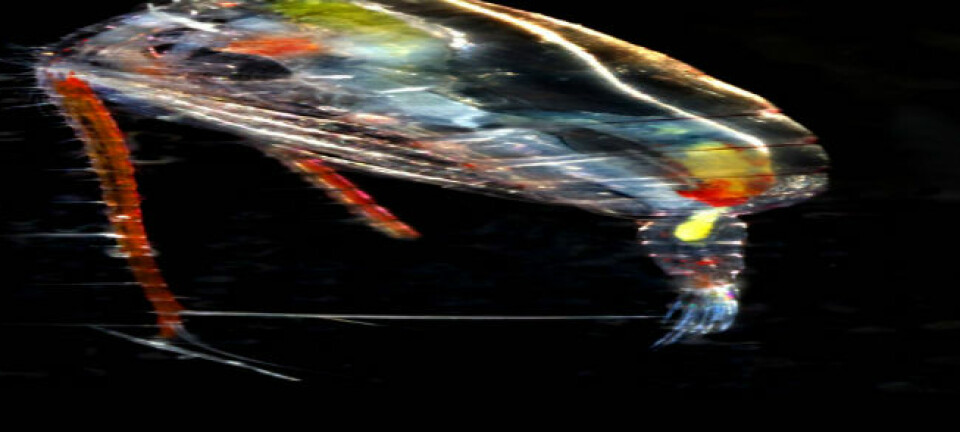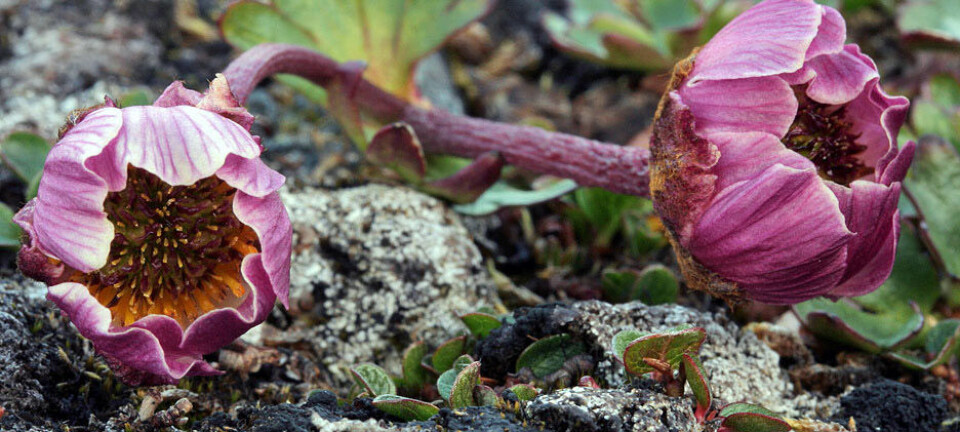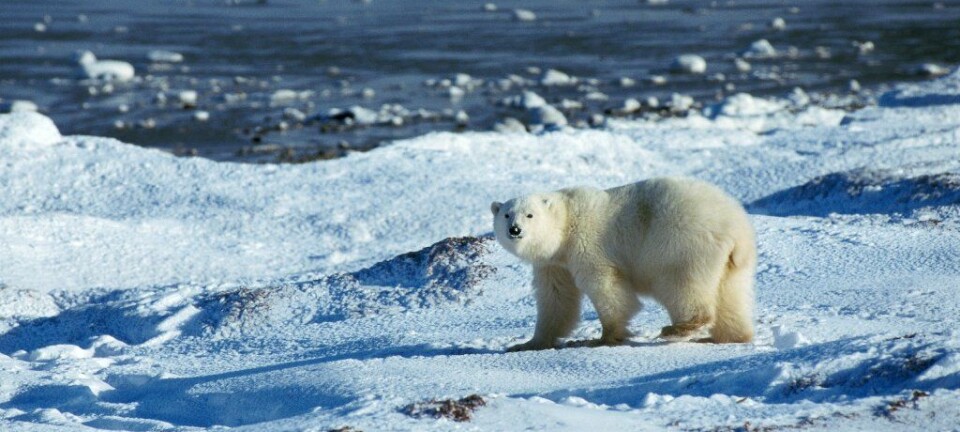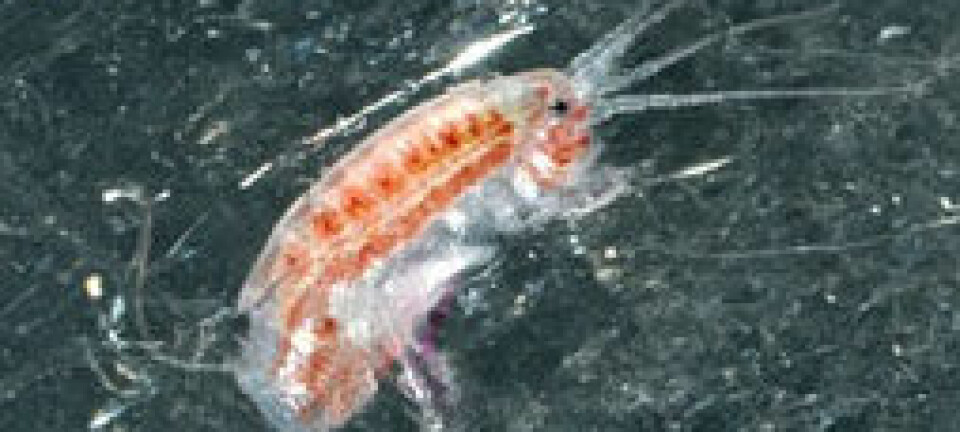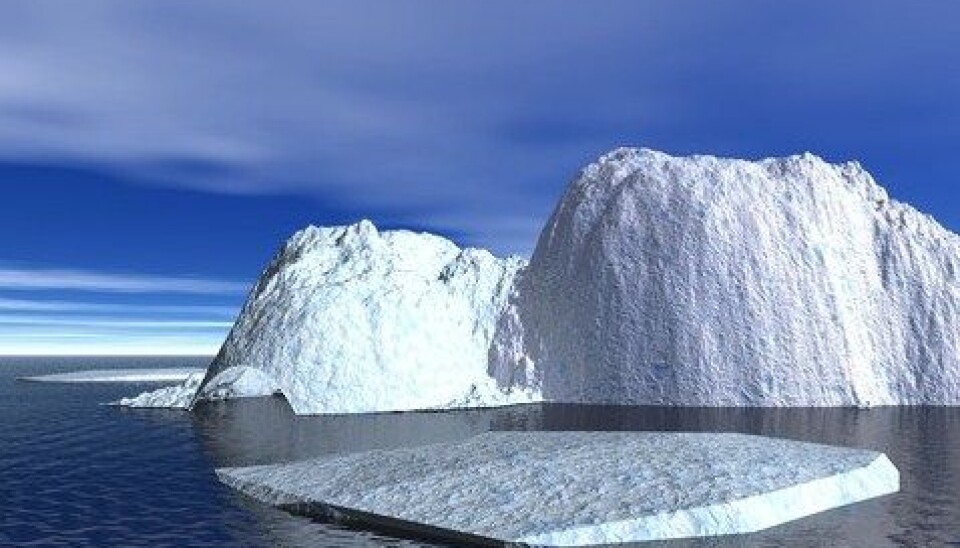
Arctic waters growing alarmingly acidic
In the past 200 years the average acidity of surface waters in the world’s oceans has risen by 30 percent. This is prime evidence of humans really changing the entire planet.
Denne artikkelen er over ti år gammel og kan inneholde utdatert informasjon.
The seas of the world are becoming increasingly acidic and the Arctic is hardest hit.
Scientists think that by the year 2100 the Arctic Ocean will be twice as acidic as it is today.
Particularly vulnerable
The Arctic Monitoring and Assessment Programme (AMAP) engaged an international group of researchers to study the acidification of the Arctic.
Today, after three years of studies, the results have been presented at the AMAP International Conference on Arctic Ocean Acidification in Bergen. The main conclusions are:
- The oceans are becoming more acidic. Marine acidification is the result of the seas absorbing huge amounts of CO2 caused by human activities.
- In the past 200 years the average degree of acidity in ocean surface waters has increased 30 percent worldwide.
- The ocean in the Arctic region is especially vulnerable. CO2 is more readily absorbed in cold water and the increasing flow of fresh water reduces the ocean’s capabilities of neutralising acidification.
- In central areas of the ocean in the Arctic the acidification is more extensive, especially because surface water in these areas is so heavily affected.
- As the food chains in the Arctic are relatively short and simple, marine ecosystems are succeptible to changes when external factors impact key species.
“Something totally unique is happening. This is the first time we humans are actually changing the entire planet. We are acidifying the oceans. Our most optimistic prediction is that the seas will be twice as acidic within a few decades − by the end of this century,” says the marine and evolutionary biologist Sam Dupont of the University of Gothenburg in a press release.
Dupont points out that this problem is accelerating in the Arctic.
“So the big question is what consequences the ocean acidification will have on the arctic species, ecosystems and the functions they have.”
A global problem
The researcher group writes that the oceans’ ability to absorb the greenhouse gas carbon dioxide has strongly diminished. The CO2 currently in the atmosphere and that which will be discharged in coming decades will make ocean acidification a global problem.
“A lot of changes can occur in the Arctic marine ecosystems and in geochemical systems. Changes have traditionally been about warming, increases in fresh water and changes in the influx of nutrients. Now we have what we could call a ‘new kind on the block’ – ocean acidification,” says Senior Researcher Richard Bellerby at the Norwegian Institute for Water Research (NIVA) and the Bjerknes Centre in a press release.
He explains that the sea has done us all a great service in protecting the climate the last 200 years by acting as a carbon sink, absorbing huge amounts of CO2. The sea has absorbed about half the CO2 we have discharged since the industrial revolution and still takes about 25 percent.
Domino effect
Ocean acidification affects marine ecosystems and the relatively short food chains in the Arctic are especially vulnerable.
Only limited research has been conducted on the problem to date but the scientists behind the report say studies give grounds for concern about various organisms that can be affected by the ocean acidification – directly or indirectly.
“One example is the possible extinction of types of the starfish brittle stars. If you expose their eggs to the degrees of acidification we expect in a few decades they die within a few days,” says Dupont.
He points out that while we might not care about this species, other species that live on brittle stars will be impacted when they die out:
“Scientists think that similar effects will occur in the Arctic and that they can be even more severe in this region.”
Impacting life in the Arctic
Humans will also be the losers as marine ecosystems collapse. It will affect commercial fishing in the rich northern waters and undermine the way of life and food supplies for indigenous peoples in the Arctic.
“Changes in the sea will affect human life in the Arctic in many ways, primarily economically. When fish get scarcer, those whose lives are based on fishing will be impacted. The same goes for the fishing industry,” points out Professor Rashid Sumaila of the Fisheries Economics Research Unit of University of British Columbia.
“We will also notice an effect on tourism and outdoor life. People come from all over the world to experience animal life in the Arctic. This too will be affected by the changes. If there are no animals to see, nobody will come.”
--------------------------
Read the Norwegian version of this article at forskning.no
Translated by: Glenn Ostling







